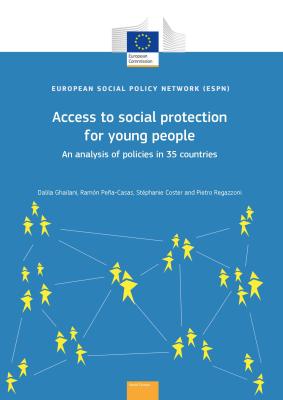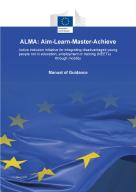This section allows you to
- search publications by subject, keyword, publication date or type
- order the publications you are interested in by contacting us or through EU Publications, the online catalogue of publications of the European institutions
Filter by
Publications (193)
RSSThe March 2022 edition of the Employment and Social Developments Quarterly Review discusses data collected before the unjustified invasion of Ukraine by Russia on 24 February 2022.

The report identifies the main gaps and obstacles faced by young people in accessing social protection schemes, providing a factual overview of the current state of social protection for young people in Europe.

ALMA (Aim-Learn-Master-Achieve) is an active inclusion initiative to empower the most vulnerable young people aged 18 to 29 who are not in education, employment or training (NEETs), by implementing a tailor-made approach to support them to find a job and integrate into society.
The 2021 statistical reports focus on the most recent developments in light of the COVID-19 pandemic which strongly reduced intra-EU mobility in 2020. The report explains to what extend the pandemic has impacted the coordination of social security systems.

The report highlights the flexibility and effectiveness of CLLD in promoting integrated, community-driven development solutions across different contexts and EU funding streams.
This brochure outlines this vision and the importance of VET reforms at national level, including key principles and actions to support these reforms. It also looks at the EU initiatives leading the way and the assistance available to Member States in this area.
The European Network of Public Employment Services (PES Network) was established in May 2014 to enhance the co-operation between PES in Europe. The seventh Annual Report covers activities from January to December 2021
The European Platform for Investing in Children (EPIC) research note examines the medium- and long-term impact of early childhood education and care (ECEC) provision on education and labour market outcomes for children and parents, as well as the indicators employed for these measurements.
This report analyses the legal status and rights of the family members of EU mobile citizens in general and workers in particular. It describes the legal regime applicable to family members, whilst also highlighting some remaining issues.
This external study aims to contribute to a better understanding of the supply structure in the market for long-term services and examines a sample of 16 Member States with a focus on provider structures
